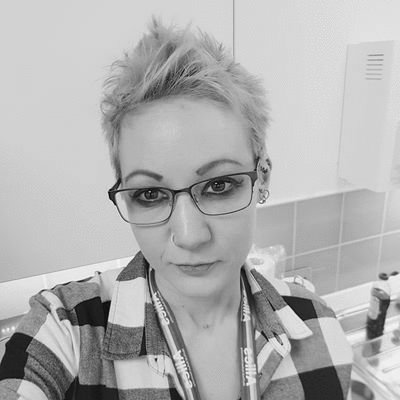Alex Lee manages the strategic communications, planning and policy development for Library & Student Support Services at Sheffield Hallam University, leading a team of seven. Her role as Head of Management Services covers a broad range of service delivery for a wide range of stakeholders, so organisation and time management is critical for her to be able to communicate effectively.
When did you first come across GTD® and what inspired you to start using it?
My earliest recollection was when a colleague who’d implemented GTD showed me how he was using Outlook tasks to keep track of things rather than just constantly wading through the inbox. I liked the logic and control. I was managing my inbox and my director’s inbox at the same time and the sheer volume of it was a nightmare. I really needed a system and I ended up using some of the GTD ideas for a few years before I finally decided to come on the GTD Fundamentals seminar to learn the rest.
Can you tell us a bit about the system you use?
Mainly Outlook. My main lists are: @Projects, @Agendas, @Calls, @Computer, @Read-review, @Schedule (specifically for meeting planning), @Someday Maybe, and @Waiting For. I also have several checklists, which have been a lifesaver. I use one for manager inductions, one for planning major events, and one for packing when I’m going places. I use Braintoss for capture. I love its portability and it saves a stack of time that I used to waste writing emails to myself. Finally, I have a notebook. I initially resisted paper when I started to use GTD because I assumed that paperless would be the way to go but now I find it really helpful to use it in meetings, tear out the sheets after and pop them in my in-tray.
What has been the most valuable thing you have learned from having GTD in your life?
That I can do anything. There’s literally nothing I can’t do. Two projects that I’ve managed to find time for this year on top of existing commitments are a programme for graduate interns and a communications project for raising awareness of sexual harassment and hate crime. I honestly can’t imagine where I’d have found time for that a couple of years ago.
I’ve also quit smoking since I started using GTD. Before, I was really struggling to manage my job and my life. I’d always wanted to quit and using GTD not only helped me keep focused on it as a goal but it also helped that I started to have less stress in my life.
If we were to look at your projects list, what would you say is your favourite project?
Moving house. There have been some false starts and broken chains, but keeping focused on the desired outcome helps me to bounce back and keep moving.
What do you do in your spare time (now you have plenty of it, of course!)?
I have a pretty hectic life with work, kids and house moves, but now I’m actively planning travel, too, with a realistic sense of actually making it happen. Some of the places I’ve always wanted to visit are Iceland, Mexico, Thailand and India.
How has GTD changed the way you work with other people?
I’ve found that I’ve been able to do much more collaborative work. GTD has given me the tools to be able to talk to people in a more intelligent and useful way so I can get the detail of what I need and work with them better. My ‘Waiting for’ list has been brilliant for supporting this and being more efficient generally frees up time and gives me the focus to get more things done.
Do you use GTD on your team/organisation, and if so, what are the benefits you’ve seen that come when there are multiple people using the approach?
Yes. After doing the GTD seminar myself I organised in-house training for the whole team with Next Action Associates. I’ve found that we’re working in a much more organised way now. People are thinking along the same lines about how we work with each other and it has massively improved communication. We have a much more concrete sense of specific, common goals and are able to track and discuss progress in one-to-one meetings, team meetings and appraisals. Our one-to-one meetings have improved noticeably. The team are now bringing agenda lists with them and, although they may not recognise it, I can see that they’re doing much more preparation in advance.
Do you have any tips on how to most effectively conduct your Weekly Review®?
Escape. Get away from where you normally are, from where you can be captured. We now have the habit of booking a room for the whole team to do weekly reviews. I also sometimes head for the café in a different building if I want to get away myself.
What’s the coolest thing on your Someday/Maybe list?
Learning to ride a motorbike so I can drive across Mexico and celebrate Day of the Dead.


